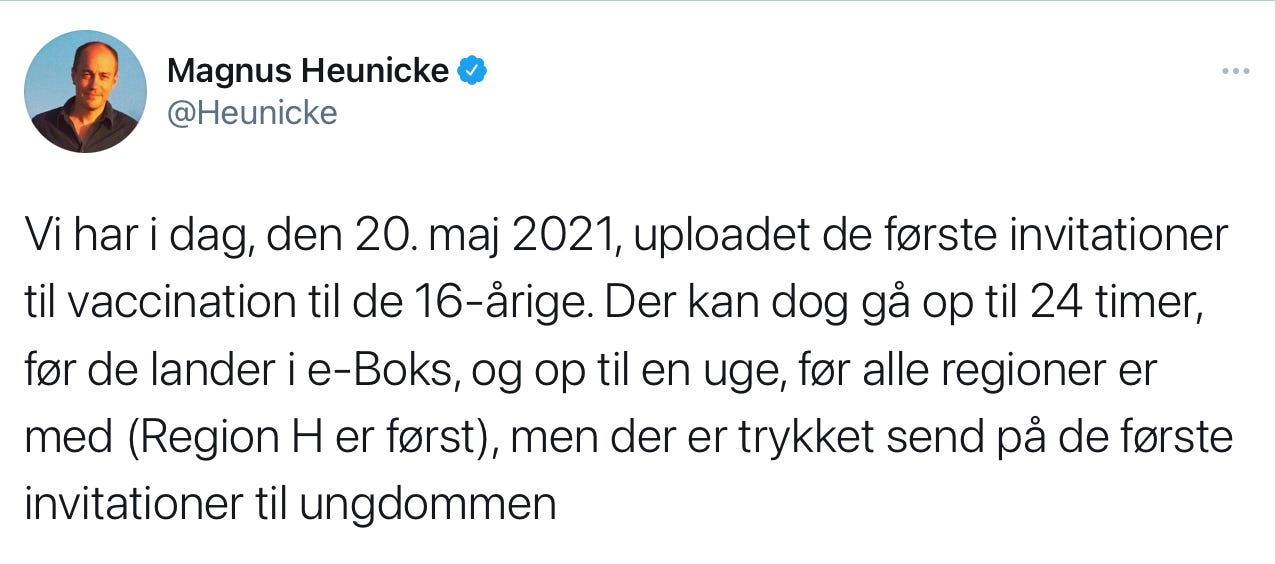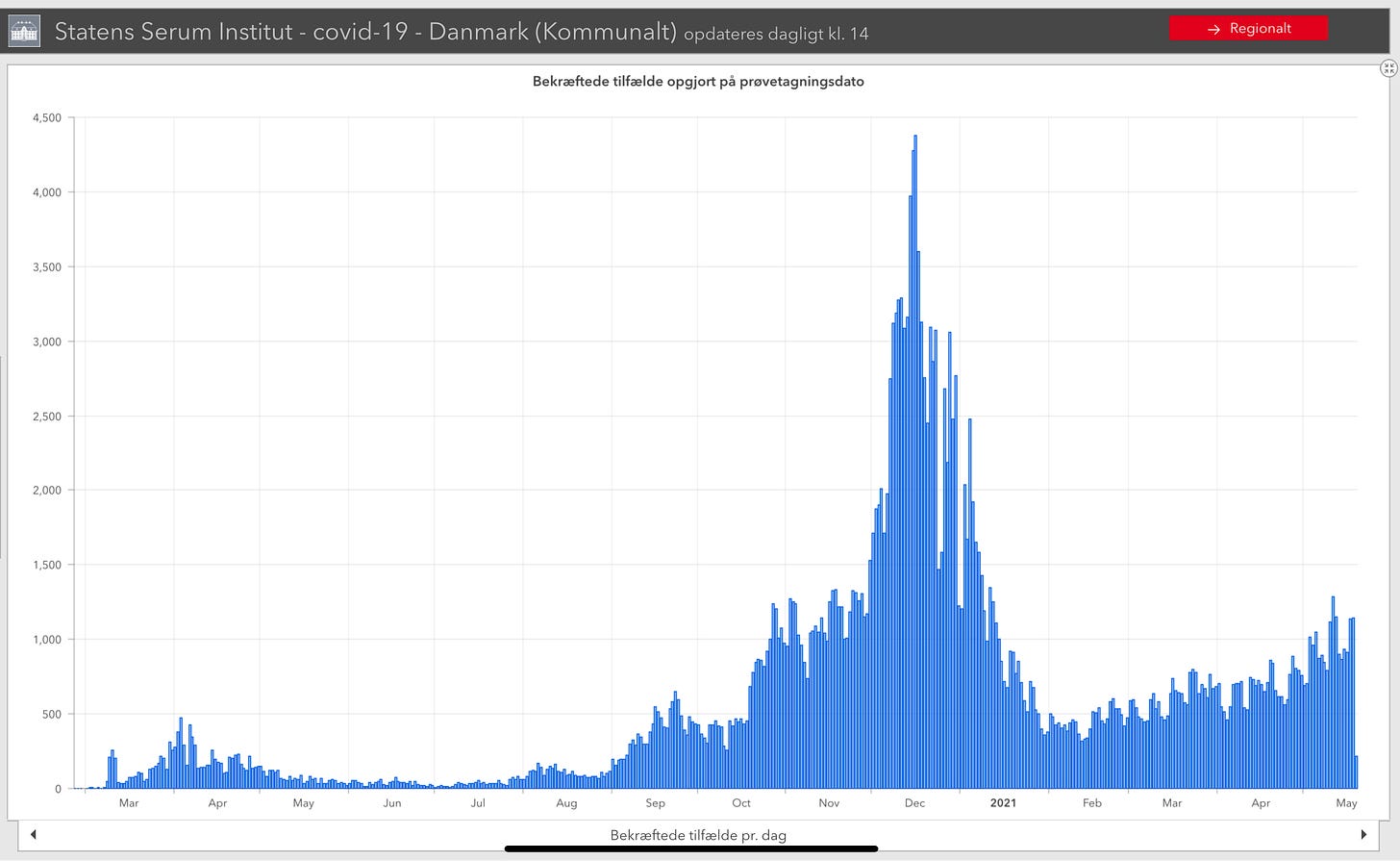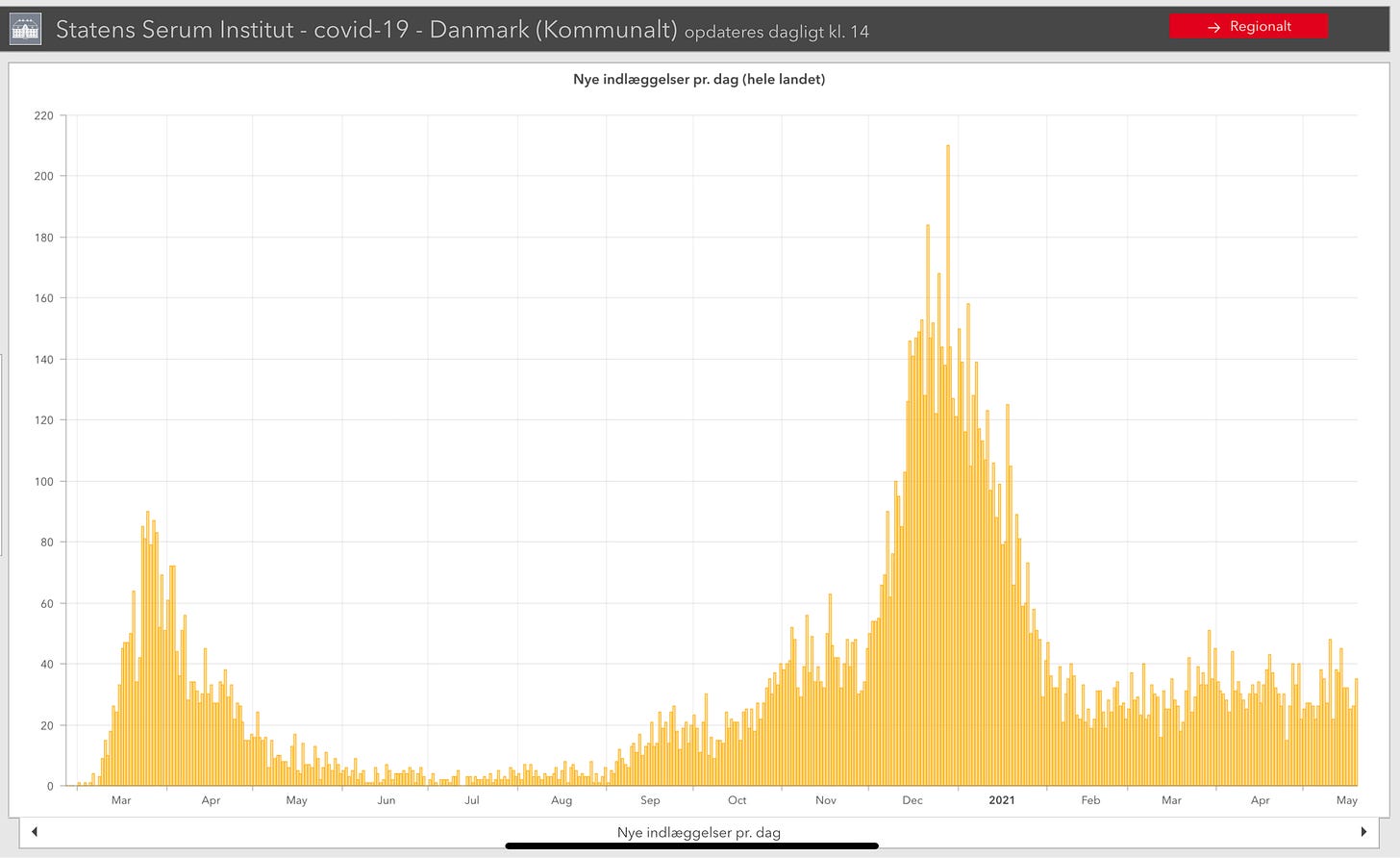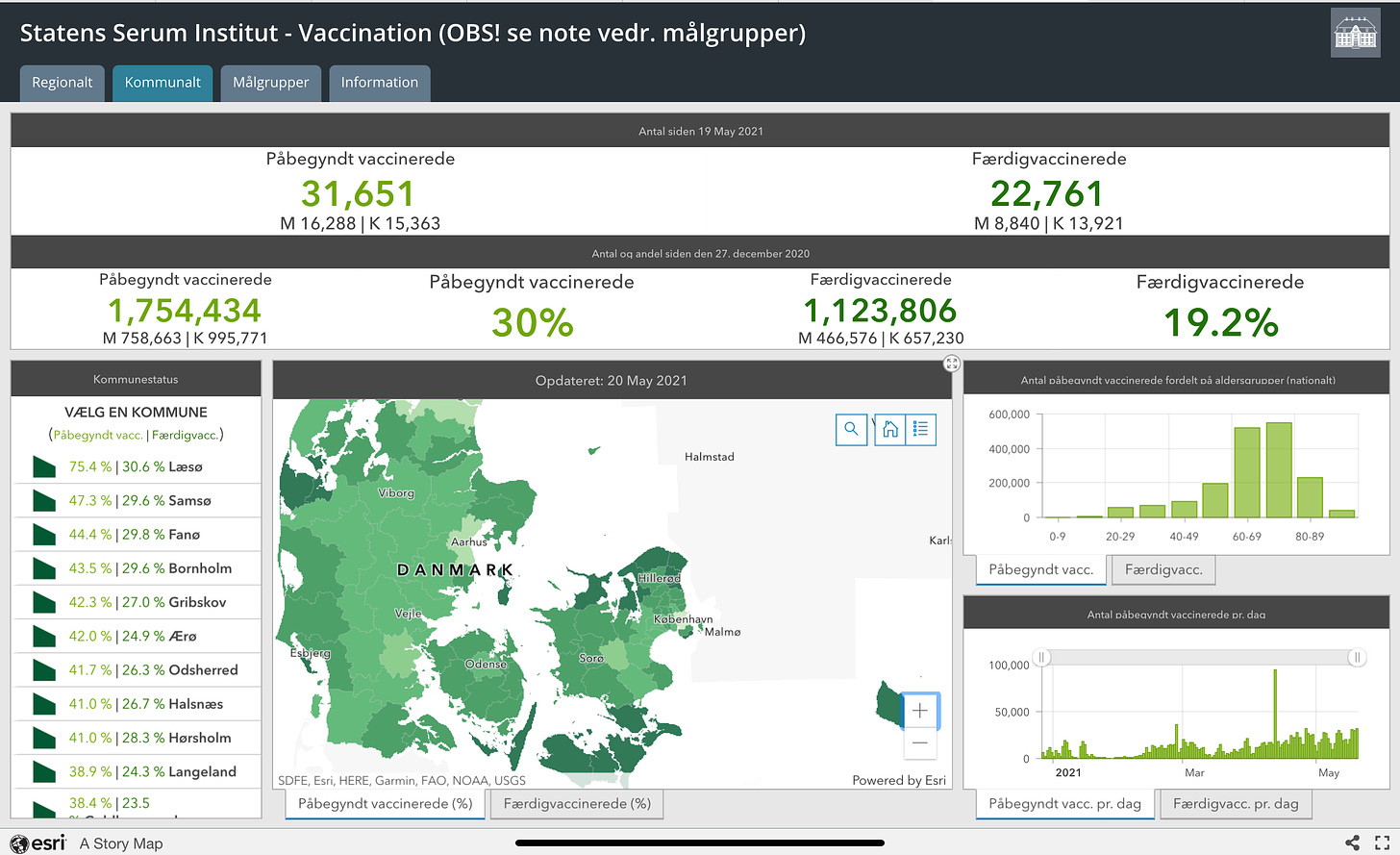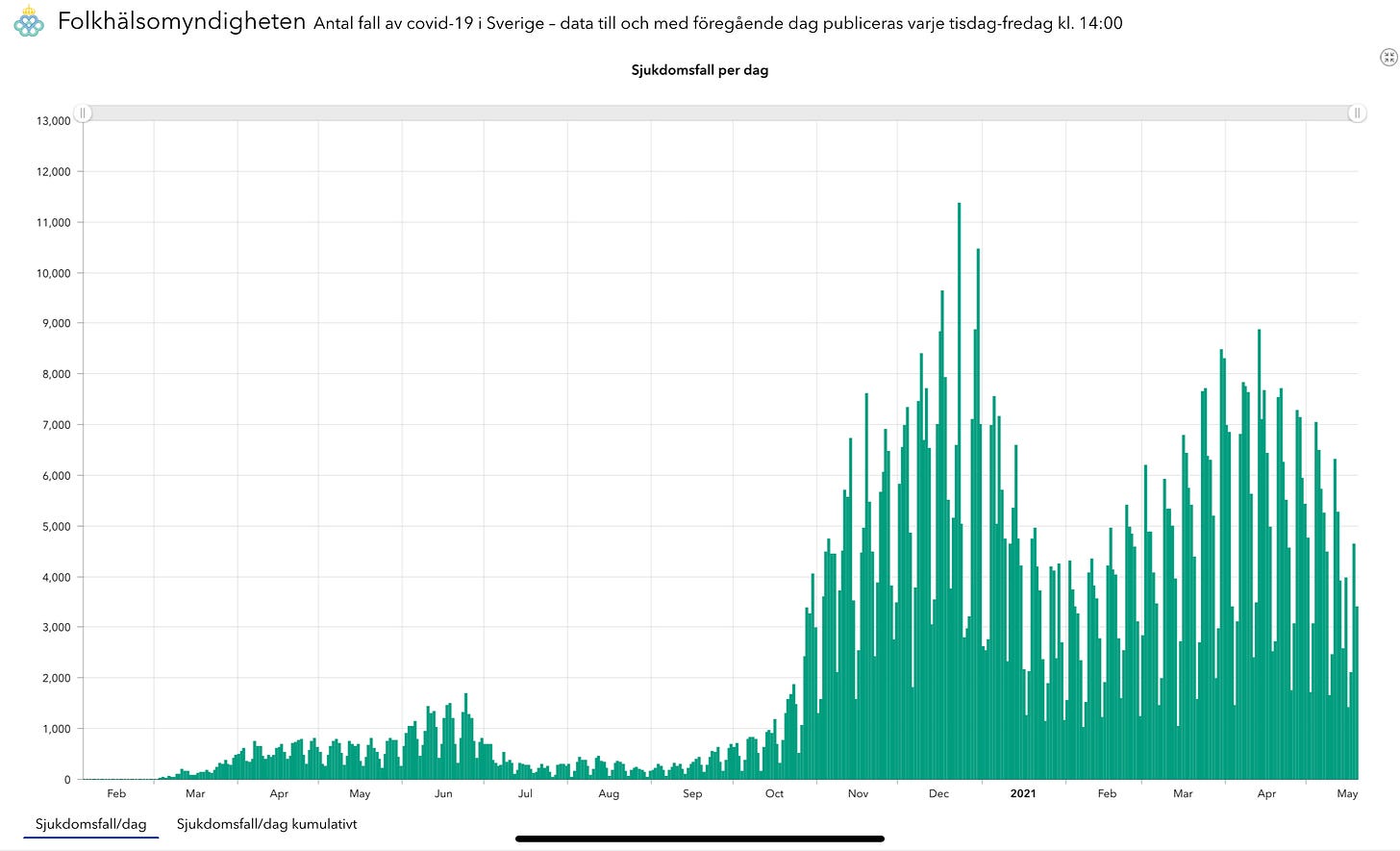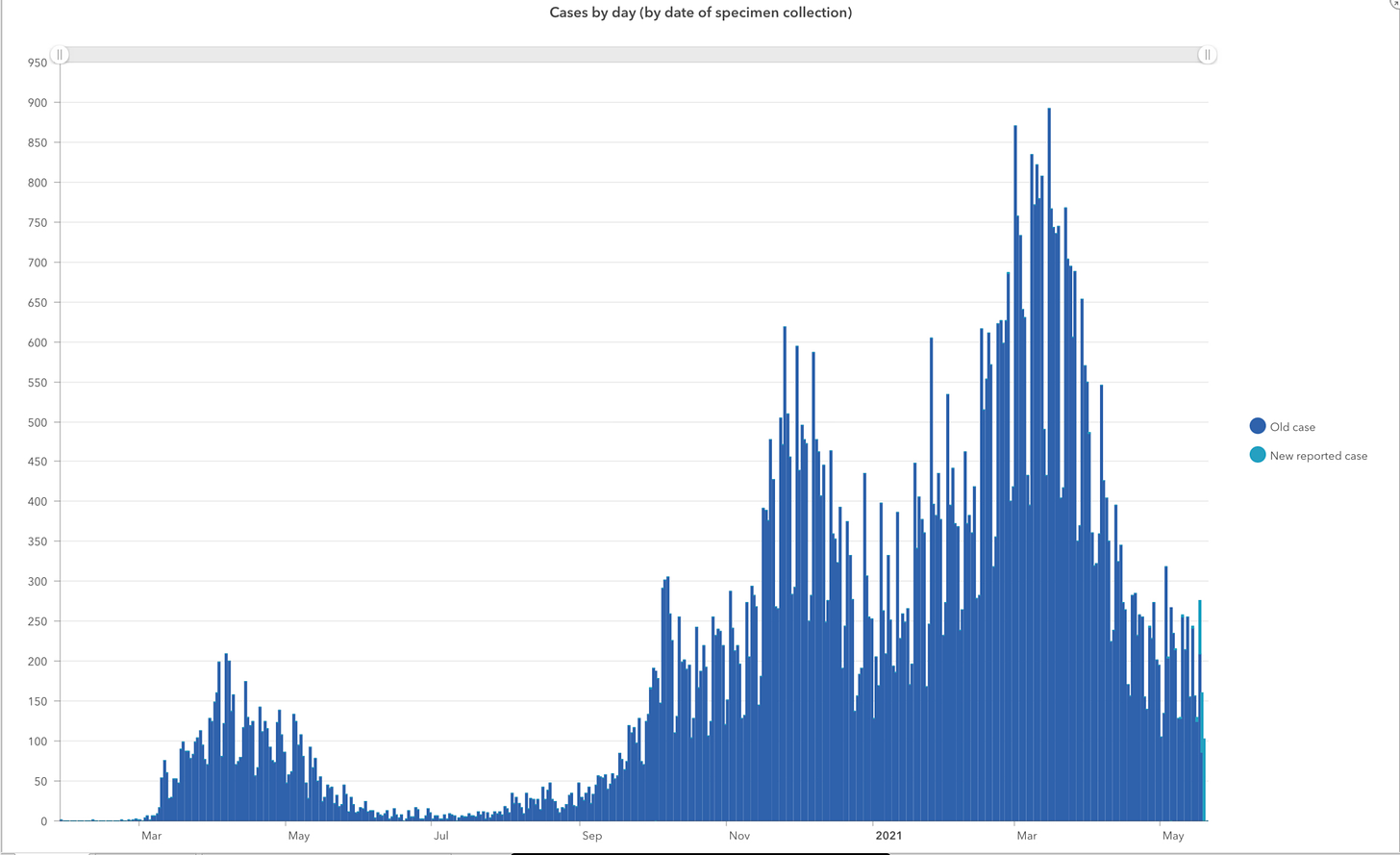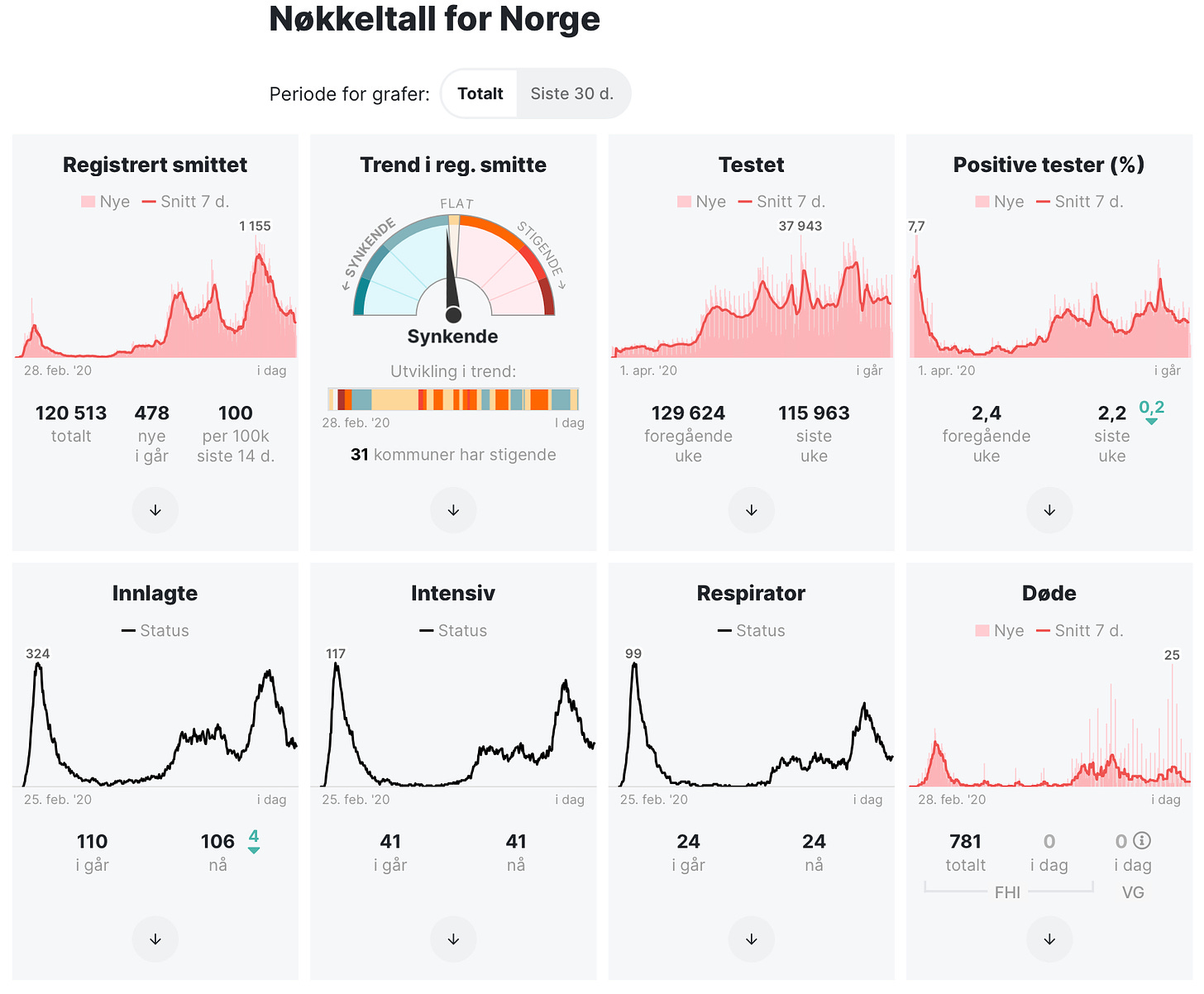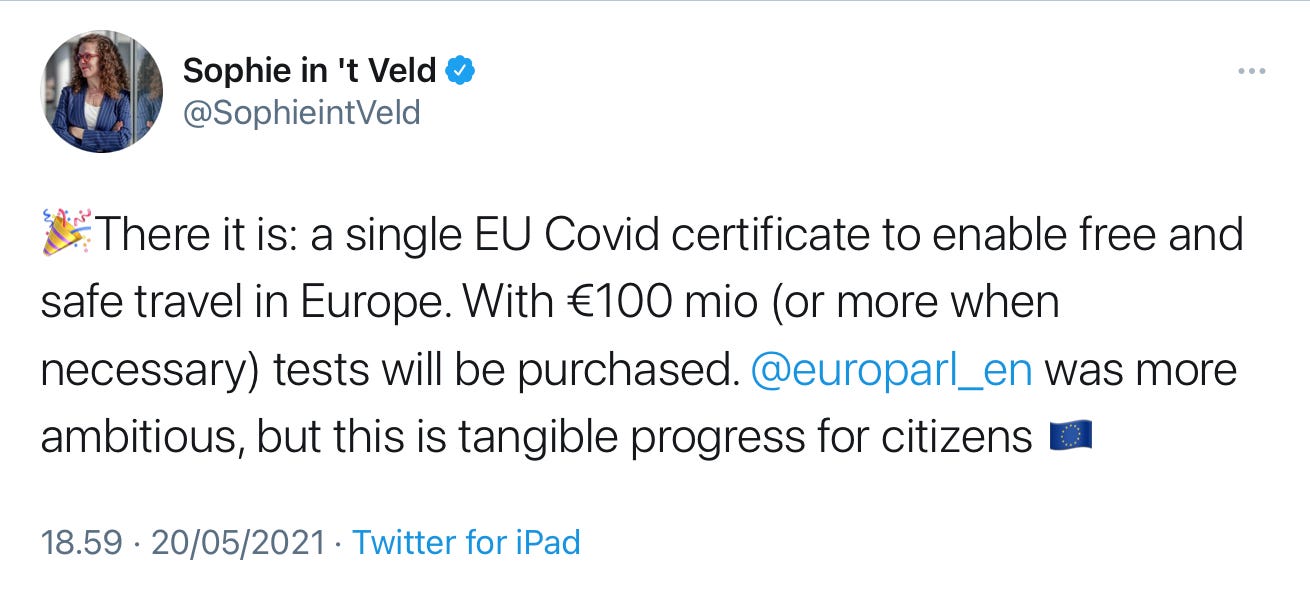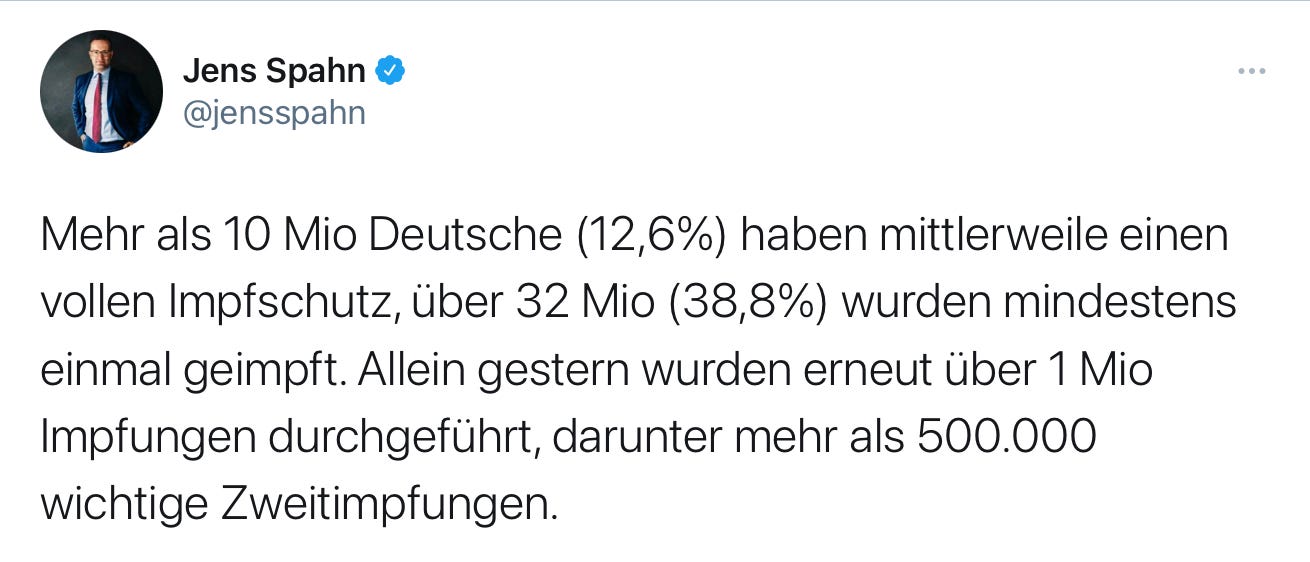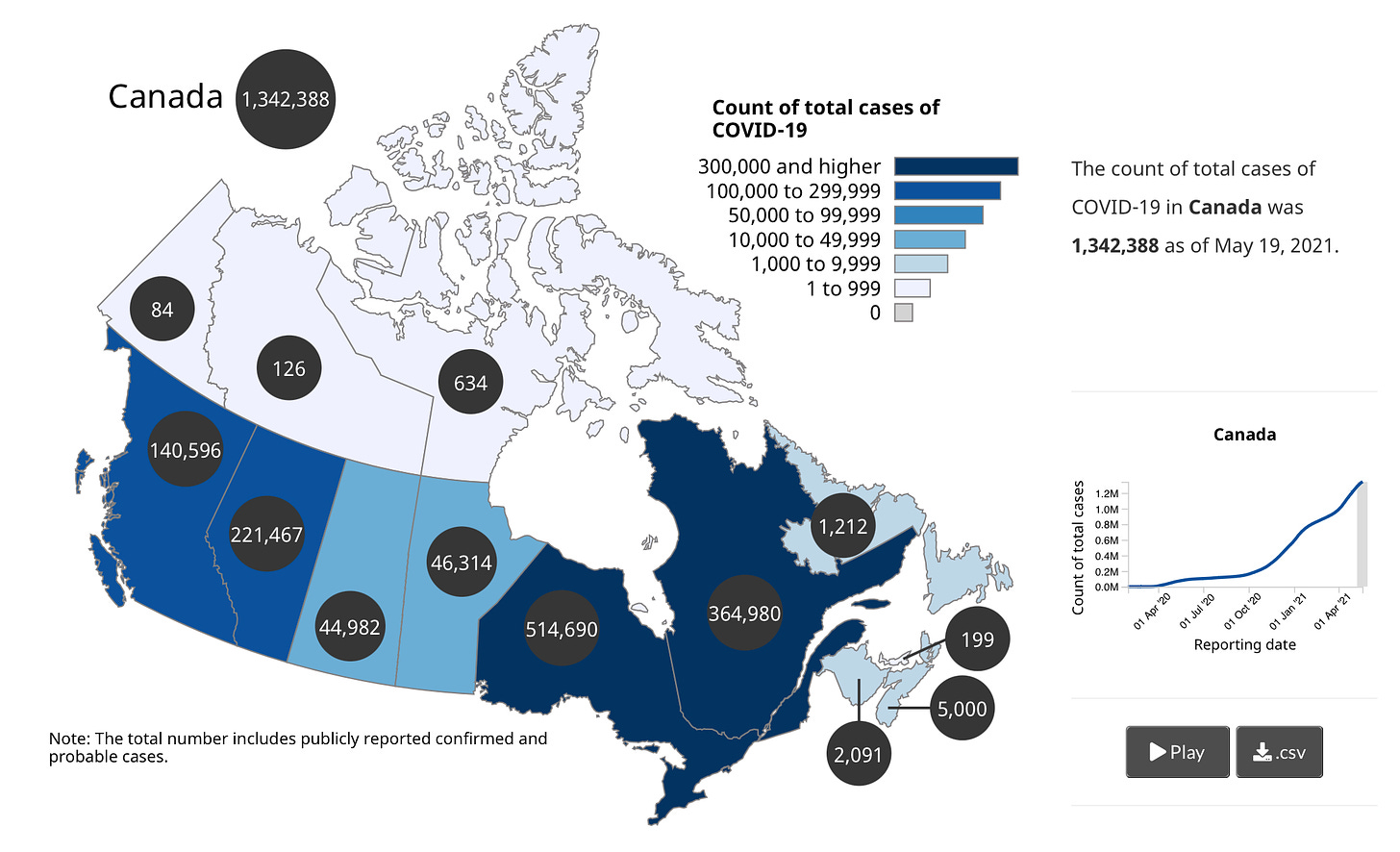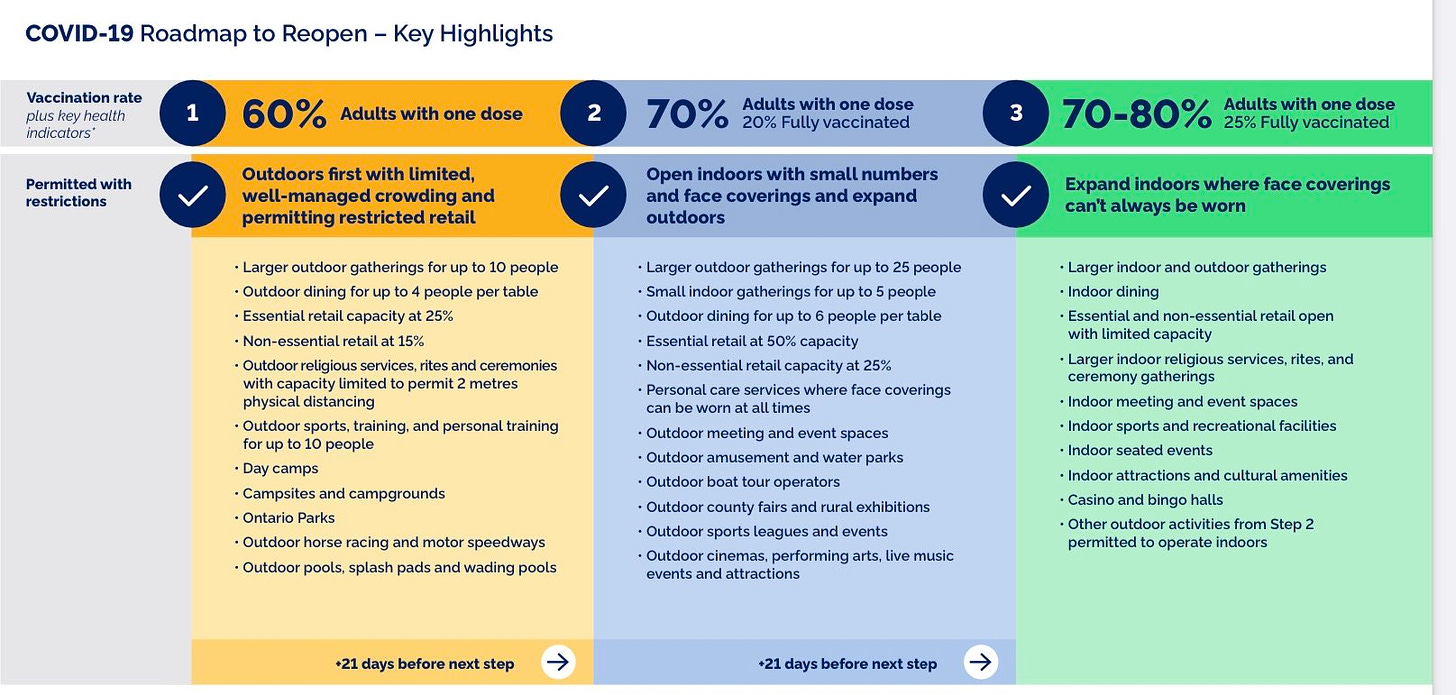🇩🇰
Denmark’s Health Minister Magnus Heunicke says vaccination invitations have been sent today to the first cohorts of 16-year-olds. Heunicke says it takes about 24 hours for the invitations to land in eBoks so they should begin to arrive tomorrow.
-
The Danish National Health Board has issued special guidelines for private contractors who will administer the AstraZeneca and Johnson & Johnson vaccines under the optional vaccination scheme. The agency says due to the two vaccines not being recommended for use by the health board and the risk of rare but serious side effects, there is an added onus on doctors administering the doses.
Unit Manager Bolette Søborg:
“We have updated the guidelines for vaccination against COVID-19 so that it describes the framework for the scheme, including the special obligation the doctor has in connection with prescribing the vaccines, for example in relation to informing the citizen.”
Doctors administering AstraZeneca and Johnson & Johnson have to fully brief anyone wanting a dose about the risks and what symptoms to watch for. Then, the person has to give their informed consent on the record to get vaccinated.
For more on the optional scheme you can read THIS story we filed in Informeret earlier today.
-
One of the private companies vying for a contract to administer vaccinations under the optional scheme says they are already seeing massive interest. Jonas Nielsen, doctor and co-founder of Practio, told DR today that more than 10,000 people are already on waiting list for AstraZeneca or Johnson & Johnson doses. Nielsen says people were signing up today at a rate of 15 to 20 registrations a minute. He told the national broadcaster his company will have vaccination sites in all the big cities and hope to begin inoculating people next week. Once they are up to speed, Nielsen says they hope to administer 10,000 vaccinations a day.
-
The Danish government has struck an expert panel to prepare the country for any future pandemics. It is charged with establishing a long-term strategy for handling COVID outbreaks, or any other pandemic in the coming years.
Minister for Finance Nicolai Wammen:
“During the COVID-19 crisis, we have continuously adapted our infection control efforts according to the current situation, but it is also important that we look a little further into the future and think about a more long-term strategy. The new expert group will give us knowledge about how we can establish a coordinated COVID strategy for the coming years that covers the full range of efforts, including testing, vaccines, and epidemic monitoring. This will ensure effective infection control, an improved sense of security, and a stable economy.”
The expert group will:
Create a summary all the best internationally-available knowledge on the epidemic.
Determine potential future scenarios based on the data at hand to create a framework to manage outbreaks.
Establish the foundation to build long term strategies with important focus areas for future pandemics.
Identify important efforts and pandemic response elements to focus on in the coming years.
The working group will have to work fast as its timetable at the moment runs until this August.
The panel members are:
Torben M. Andersen, Professor at the Department of Economics and Business Economics, Aarhus University (chair)
Michael Svarer, Professor at the Department of Economics and Business Economics, Aarhus University
Astrid Iversen, Oxford University Professor of Virology and Immunology
Kåre Mølbak, SSI
Jens Lundgren, Professor at Department of Infectious Diseases, Rigshospitalet, University of Copenhagen
-
And then there was one. Rungsted Parish in Hørsholm Kommune can reopen tomorrow as its infection numbers have stayed under the benchmarks mandating a shut down for the requisite seven days. This leaves just Brovst Parish in Jammerbugt Kommune under a compulsory lockdown. There are currently no lockdowns at the municipal level.
-
Denmark is reporting 1,214 COVID infections and one more coronavirus death in the last day.
Yesterday there were 625,995 total corona tests done, 185,566 PCR and 440,429 rapid, for a (PCR only) positivity percentage of 0.65%.
COVID hospitalizations (160) have dropped slightly (-3) while the number of infected people in an ICU (33) is unchanged and of those the number on a ventilator (22) has inched down (-2).
On the vaccination front to date 1,754,434 1st dose vaccinations (30% of the the population) have been administered while 1,123,806 people (19.2%) are now fully vaccinated.
The Danish National Health Board has updated its vaccination guidelines. Among the changes are recommendations for how to draw extra doses out of Pfizer and Moderna vials. It also approves, under certain conditions, the mixing of residual vaccine in vials to create another dose or two.
Pfizer vials technically have five doses but health officials in Denmark have been pulling up to seven doses from each vial. Moderna comes in vials of ten doses but here again, health staff have generally been drawing 12 doses out.
The concern is vials that come up a little short with not quite a full dose left. The health agency has issued strict guidelines about how to mix residual vaccines together to create another dose. For instance, it recommends against mixing vaccines from two different batches.
Unit Manager Bolette Søborg:
“At the vaccination sites, we must continue to strive to extract as many full doses of vaccine as possible from each multidose vial. When it sometimes fails to withdraw all the recommended full doses of vaccine from the vials, the remaining residue can be mixed with vaccine from one other vial for a full dose.”
The health board advises that mixing residual vaccines should only take place at vaccination sites by staff with extensive experience
-
Region Hovedstaden (Metro Copenhagen) has opened a new vaccination site in Frederikssund today. Some 500 people have already gone through to get vaccinated. The health regions says “new times are being posted on an ongoing basis.”
🇸🇪
Sweden has added 3,411 infections and another two corona deaths.
To date 3,377,897 1st dose (41.2% of the population) and 1,059,917 2nd vaccine doses have been administered.
-
The Swedish Public Health Agency is keeping the one-shot Johnson & Johnson vaccine on the shelf. While it stopped short of saying it was dropping the vaccine permanently, it did say the vaccine currently serves no useful purpose. The health agency says vaccinations are on track and people 65 years old and older are mostly vaccinated. With younger people most risk from rare but serious side effects of the Johnson & Johnson vaccine it doesn’t make sense to use it. In Sweden the vaccine is only recommended for use for those 65 years of age and older.
Sweden has about 31,000 doses of the vaccine to date and it says it will hang on to them possibly for use as an emergency back up if needed. Norway has also done something similar.
-
Sweden is making some progress on improving vaccination rates among ethnic and immigrant populations but lots more work needs to be done. That is the essence of the latest report from the Swedish Public Health Agency. It says for people born outside Sweden who now live there, vaccination rates among those 65 and over have improved but still lag behind native Swedes.
The agency says the gap grows even more when you look at vaccination rates for those 60 to 64 years old.
State Epidemiologist Anders Tegnell:
“Efforts to reach everyone with the offer of vaccination need to be continued and intensified. The vaccine reduces both the spread of infection and the risk of disease, and it is important to have accessibility and to achieve as high and even coverage as possible in the entire population.”
Sweden has begun tracking vaccination rates by country of birth after earlier studies found that the rates of serious illness and death from COVID are much higher among so called ‘foreign born’ compared to native Swedes. While vaccinations rates were the opposite.
🇫🇮
Finland registered 259 infections and had no new virus deaths since yesterday’s update.
COVID hospitalizations (135) have dropped (-13) and ICU numbers (28) edged down (-2).
To date 2,201,667 1st dose (39.5% of the population) and 331,686 2nd vaccine doses (6%) have been administered.
-
Health officials in Finland remain concerned about the level of infection activity. In the latest assessment by the Finnish Health Institute, it found the number of infections last week was a mere 100 less than the week prior. It says while the decline in overall COVID cases stabilized last week some areas actually saw cases shoot upward. The agency is warning the latest infection wave may not be over yet.
Hospital numbers increased last week but the good news is ICU pressure is easing with fewer patients needing intensive care.
The Institute says 90% of those 70 years old and older have at least one vaccine dose. Across all ages 16 and over the number is 46%. The agency says it is on track to get everyone a first dose by July.
🇳🇴
Norway added 431 infections and had no new corona deaths since yesterday’s update.
COVID hospitalizations (106) are down (-4) ICU numbers (41) ventilator numbers (24) are both unchanged.
To date 29.50% of Norwegians have had one vaccine dose while 12.63% have had both.
-
Norway will reallocate vaccine doses to municipalities with higher infection rates at the expense of those in better positions. Health minister Bent Høie made the announcement at a press conference Thursday evening. Høie says this won’t impact the country’s vaccine timeline, which hopes to get a first dose to everyone by July, but will rather increase the pace of vaccinations in hot spot areas. Municipalities in eastern Norway are under the highest infection pressure and will begin to be targeted with extra vaccine doses next month.
🇪🇺
European Union legislators have reached a deal to implement an E.U. wide vaccine passport.
Dacian Cioloş, President of Renew Europe, says crucial to the deal for his group was €100 million to provide free Europe wide COVID testing for freedom of movement for the vaccinated and those who haven’t yet had both doses.
“In this negotiation, our group particularly insisted on access to affordable testing. This is important for all Europeans who will still be waiting to be vaccinated in the coming weeks and months. They too must be able to travel. We welcome an easy to understand system. It was important not to add new administrative burden to citizens and businesses. The price must not be a barrier for all those with limited financial means. It is a question of social justice at a time when the health crisis has increased inequalities.”
The deal will be finalized in June with the digital certificate officially arriving in July.
🇪🇺💉
The European Union has officially signed a third pact with Pfizer securing up to 1.8.billion vaccine doses to be delivered in 2022/23. The E.U. looks like it is determined not to get burned again as contract language specifies the supply is to be guaranteed. It also specifies that vaccine production must be based in the European Union and vaccine components sourced from within Europe.
The E.U. is obviously still stinging from signing initial vaccine contracts only to have supply choked off and the European vaccination campaign derailed by the countries like the U.K. and the United States that all but blocked domestically produced vaccine doses from being exported.
E.U. Health Commissioner Stella Kyriakides:
“We need to be one step ahead of the virus. This means having access to adapted vaccines to protect us against the threat of variants, booster vaccines to prolong immunity, as well as protecting our younger population. Our focus is a priority on technologies that have proven their worth, like mRNA vaccines, but we keep our options open. The past months have clearly demonstrated the need to have access to a broad portfolio of vaccines and different technologies, as well as reliable partners. As the pace of vaccination increases every day and work on effective therapeutics intensifies, we can look ahead with more optimism and confidence.”
🇩🇪
Germany’s Health Minister Jens Spahn says more than 10 million people (12.6% of the population) in the country are now fully vaccinated. He says 32 million people (38.8%) how have at least one vaccination dose. Yesterday there were more than one-million vaccinations administered across Germany with half, 500,000, being 2nd doses.
🇨🇦
Yesterday Canada reported 4,248 new infections while suffering another 48 coronavirus deaths as the infection curve continues to trend downward.
The vaccination campaign in Canada continues to steam along with 17,958,575 1st dose vaccinations (47.25% of the population) while 1,486,018 people are now fully vaccinated.
In Ontario today Health Minister Christine Elliott tweeted “Ontario is reporting 2,400 cases of COVID19 and over 45,400 tests completed. Locally there are 607 new cases in Toronto, 528 in Peel, 224 in Hamilton, 181 in York Region and 110 in Durham. As of 8:00 p.m. yesterday, 7,576,624 doses of the COVID-19 vaccine have been administered.” There were also 27 more deaths.
The Ontario government has announced three phase reopening plan with each phase tied to infection benchmarks and vaccination rates.
Quebec reported 662 infections and eight more deaths.
In Atlantic Canada, Nova Scotia had 65 infections, New Brunswick seven. Newfoundland and Labrador had four.
Manitoba had 402 infections and four deaths yesterday and today it has reported a record high 603 new infections. Premier Brian Pallister is calling this the “darkest days” of the pandemic in his province.
There were 141 infections and no new deaths in Saskatchewan yesterday.
Alberta recorded 908 infections and six more deaths yesterday. There are 685 people in hospital with 185 in an ICU. Students in the province will be headed back to school next week after the variant wave forced schools to close.
B.C. reported 512 infections and eight more corona deaths yesterday.




